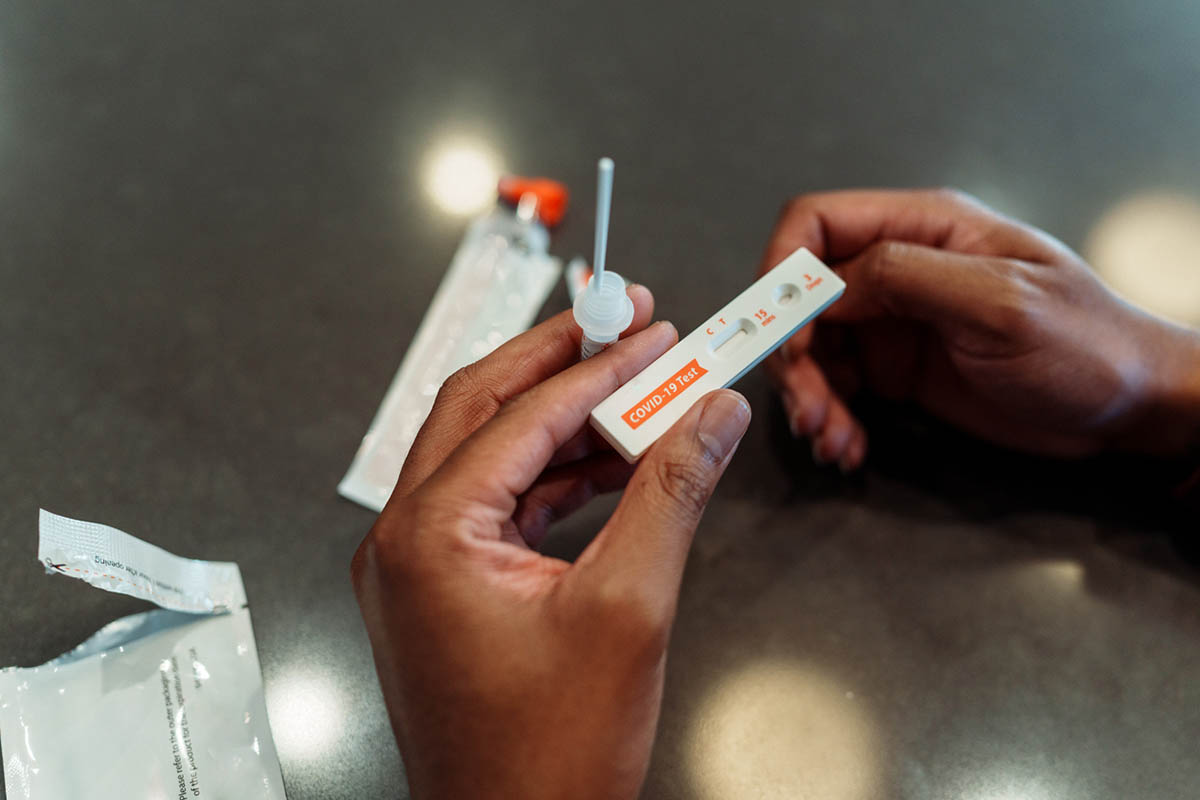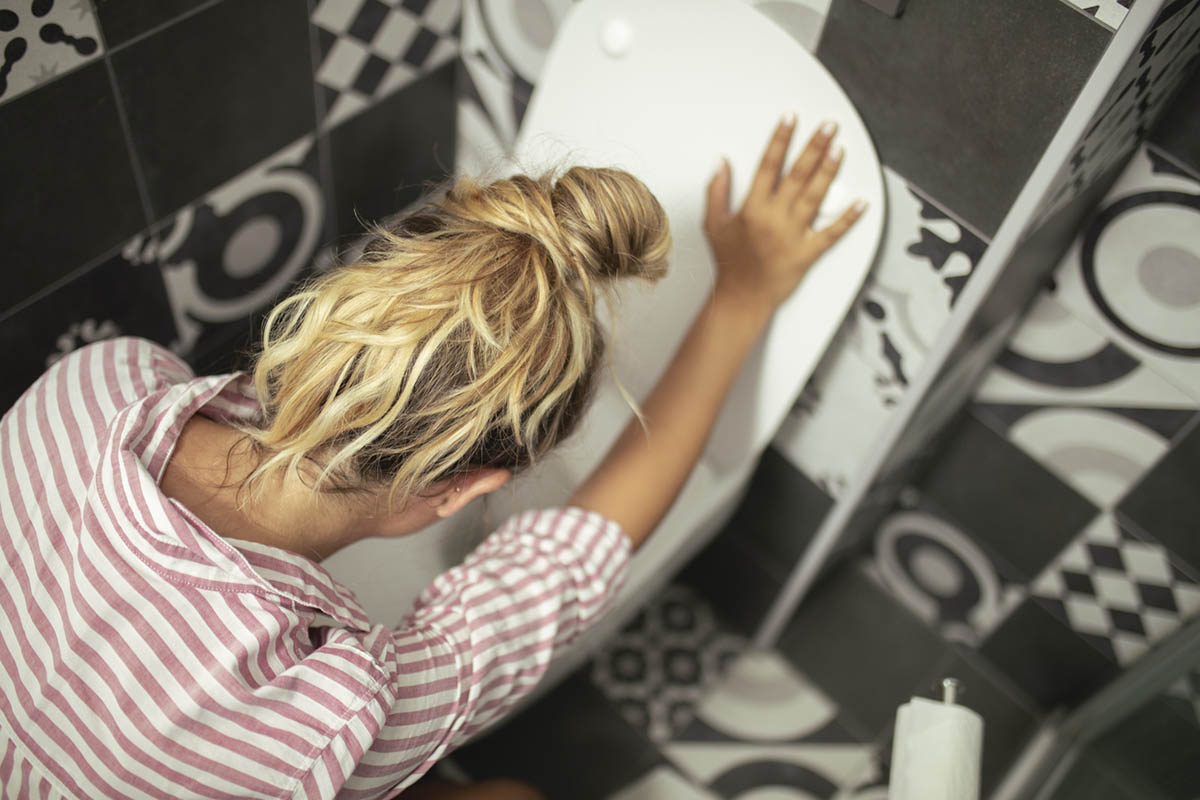Prim Care Companion CNS Disord 2021;23(1):20l02826
To cite: Uvais NA. COVID-19–associated panic disorder. Prim Care Companion CNS Disord. 2021;23(1):20l02826.
To share: https://doi.org/10.4088/PCC.20l02826
© Copyright 2021 Physicians Postgraduate Press, Inc.
aDepartment of Psychiatry, Iqraa International Hospital and Research Centre, Calicut, Kerala, India
*Corresponding author: N. A. Uvais, MBBS, DPM, Iqraa International Hospital and Research Centre, Calicut, Kerala, India ([email protected]).
The psychiatric sequelae of the currently evolving coronavirus disease 2019 (COVID-19) pandemic are not yet clear. Here, a case of panic disorder in a patient with COVID-19 infection is presented, which has hitherto not been reported.
Case Report
A 38-year-old married man of middle socioeconomic status presented to the psychiatry outpatient department of our hospital in India with complaints of recurrent episodes of palpitation, worries, shortness of breath, chest discomfort, fear of death, and impaired biological function for 1 month. The recurrent episodes of palpitation were associated with sweating, dryness of mouth, fear of death, and feeling of impending doom and lasted for around 10 minutes. The symptoms started in July 2020 when he was working in the Middle East and staying alone. He developed a fever and tested positive for COVID-19. Within 2 days of the diagnosis, he developed severe palpitation and fear of death. Although his COVID-19 symptoms were mild, and he developed no hypoxemia and tested negative for COVID-19 on the eighth day, his psychiatric symptoms persisted. Meanwhile, he also developed hypertension and was started on antihypertensive medications. He was evaluated for cardiac problems (electrocardiogram, echocardiography), and all investigations were within normal limits. He returned home to India in August 2020 and was quarantined for 2 weeks according to the local government guidelines. His psychiatric symptoms exacerbated during this period. He had no history of psychiatric illness or any history of psychiatric illness in close relatives. There was no history of significant past medical illness or substance abuse.
His mental status evaluation revealed anxious affect. There were no thought or perceptual abnormalities. He was diagnosed with panic disorder (DSM-5 criteria). Although symptoms such as fear of death and anxiety are frequently observed in COVID-19–positive patients, the periodic nature of palpitation associated with the feeling of impending doom, which lasted only for around 10 minutes, led to the diagnosis of panic disorder. He was psychoeducated about his illness, and oral sertraline 50 mg/d and oral clonazepam 0.75 mg/d were prescribed.
Discussion
Previous systematic studies1,2 evaluating psychiatric complications among COVID-19 patients reported anxiety, depression, delirium, psychosis, dementia-like syndrome, catatonia, mania, mood swings, insomnia, and suicide. Panic disorder is characterized by repeated panic attacks, which is often accompanied by anticipatory anxiety, fear of losing control, and behavioral changes related to the attacks.3 The exact neurobiological mechanisms underlying panic disorder are not yet clear. However, there is increasing evidence indicating the role of the amygdala in the pathogenesis of panic disorder.4 The exact mechanisms linking psychiatric complications and COVID-19 infection are still unclear. However, there are likely to be multiple biological and behavioral pathways that account for these linkages, including secondary immune alterations associated with COVID-19 infection. Experimental evidence also supports the hypothesis that subclinical alterations of basic physical functioning, mainly the respiratory system, may be involved in the pathogenesis of panic attacks.5
Received: September 29, 2020.
Published online: February 18, 2021.
Potential conflicts of interest: None.
Funding/support: None.
Patient consent: Consent was received from the patient to publish the case report, and information has been de-identified to protect anonymity.
References (5)

- Dinakaran D, Manjunatha N, Naveen Kumar C, et al. Neuropsychiatric aspects of COVID-19 pandemic: a selective review. Asian J Psychiatr. 2020;53:102188. PubMed CrossRef NLM
- Varatharaj A, Thomas N, Ellul MA, et al; CoroNerve Study Group. Neurological and neuropsychiatric complications of COVID-19 in 153 patients: a UK-wide surveillance study. Lancet Psychiatry. 2020;7(10):875–882. PubMed CrossRef NLM
- American Psychiatric Association. Desk Reference to the Diagnostic Criteria from DSM-IV-TR. Washington, DC: American Psychiatric Association; 2000.
- Kim JE, Dager SR, Lyoo IK. The role of the amygdala in the pathophysiology of panic disorder: evidence from neuroimaging studies. Biol Mood Anxiety Disord. 2012;2(1):20. PubMed CrossRef NLM
- Perna G, Caldirola D. COVID-19 and panic disorder: clinical considerations for the most physical of mental disorders [published online ahead of print August 3, 2020]. Br J Psychiatry. PubMed NLM
Enjoy this premium PDF as part of your membership benefits!





